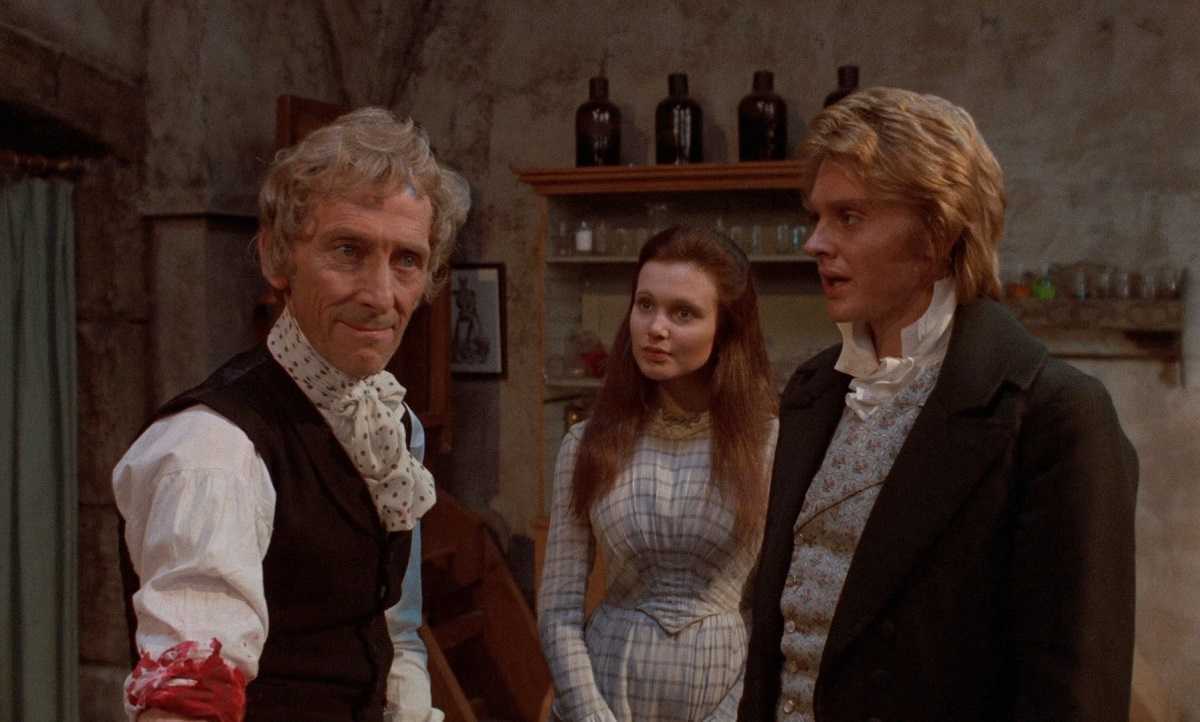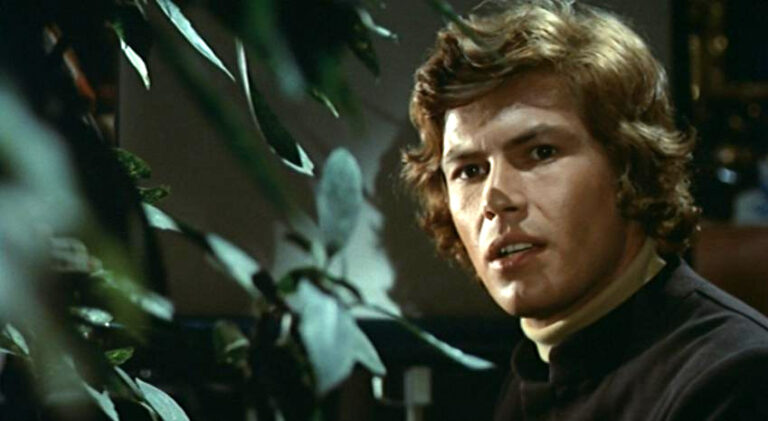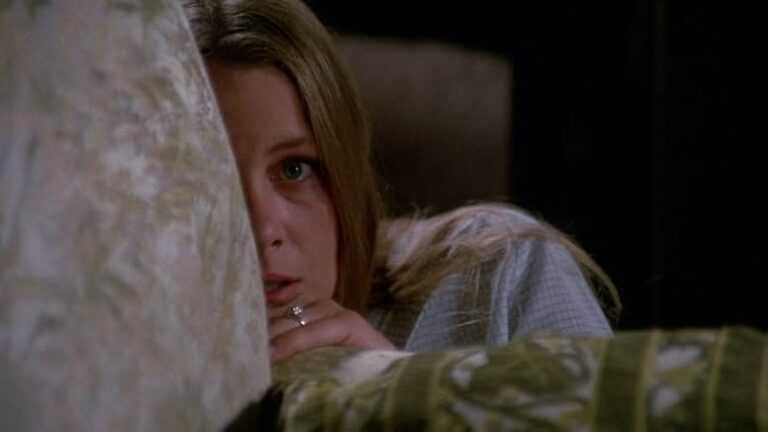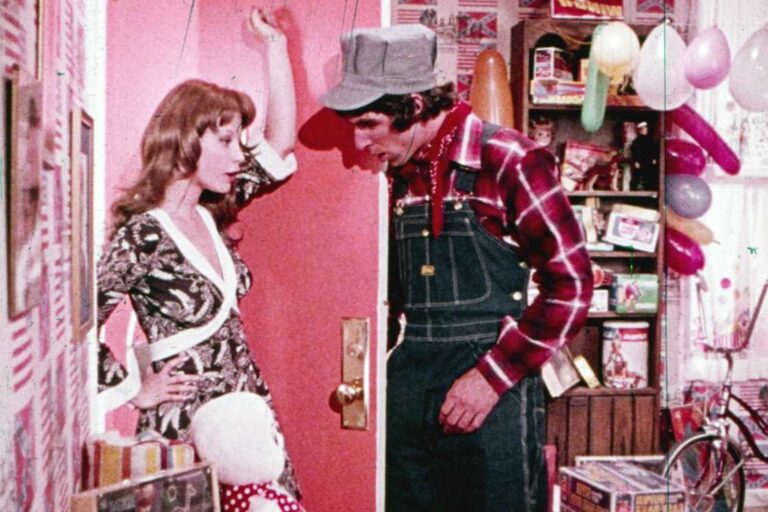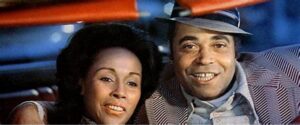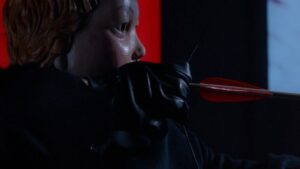Directed by Terence Fisher
Written by John Elder
Starring:
- Shane Briant as Simon Helder
- Peter Cushing as Frankenstein
- Madeline Smith as Sarah
- David Prowse as the Monster
- John Stratton as Adolf Klauss, the asylum director
- Michael Ward as Transvest
- Norman Mitchell as Police Sergeant
Rating: ![]()
The final chapter in Hammer’s Frankenstein saga, Frankenstein and the Monster from Hell, stands as both an elegiac culmination and a haunting swan song—for its legendary director Terence Fisher, for Peter Cushing’s definitive portrayal of Baron Frankenstein, and for the waning glory of Hammer Films itself. It is a film filled with last things: the last time Cushing dons the surgeon’s coat of the infamous Baron, the last Frankenstein script penned by longtime Hammer collaborator Anthony Hinds (under his pseudonym John Elder), and, in many ways, the last gasp of Hammer’s gothic cinema before the genre was overtaken by grittier, more modern horror.
This is not merely a sequel, but a reverie of sequels—a theoretical continuation that gestures back toward earlier films (Frankenstein Must Be Destroyed, perhaps), but refuses to anchor itself in strict chronology. Time, here, is ambiguous. We are only certain that many years have passed, and that the Frankenstein we encounter now is older, physically frail, and internally tempered. The fierce, obsessive scientist of earlier entries has transformed into a more contemplative, enigmatic figure, operating under the alias Carl Victor in the bowels of a decaying asylum.
Cushing’s performance is extraordinary. With a gaunt, spectral presence, he brings to the role not only his customary intensity but a new weariness that mirrors the film’s larger themes of transience and decline. His Frankenstein is less voluble, more watchful—a man who knows that the end is near, but who still clings, with undiminished fervor, to his dream of mastering life and death.
The asylum, a grim, oppressive place filled with tormented souls and institutional cruelty, becomes the perfect stage for Fisher’s final meditation on madness, morality, and mortality. Here, Frankenstein takes on a young admirer, Dr. Simon Helder (Shane Briant), who is incarcerated for grave-robbing and heretical science—offenses that clearly echo the Baron’s own legacy. Helder is more than a disciple; he is a mirror, a reminder of Frankenstein’s younger self. The two form a tenuous bond, rooted in surgical skill and a shared disdain for conventional ethics.
Fisher uses the asylum setting not for lurid sensationalism, but as a crucible for psychological and philosophical inquiry. The cruelty of the institution’s director, Adolf Klauss (John Stratton), and the sadistic guards, stands in sharp relief to the cold, clinical humanism of Frankenstein and Helder. Yet even here, moral clarity remains elusive. Though the guards are indisputably wicked, Frankenstein’s ethical ambiguity casts a long shadow. His experiments—harvesting body parts from suicidal patients to reassemble a new creature—reveal the same monomania that has always defined him, though it is now tinged with a melancholy sense of inevitability.
One figure in the film offers a glimmer of uncomplicated goodness: Sarah (Madeline Smith), a mute inmate whose innocence and empathy provide the story with a necessary moral ballast. Her quiet grace and unfailing kindness contrast sharply with the decay around her, and she becomes, in some sense, the emotional anchor of the film.
Fisher directs with the solemnity of a man composing a requiem. Gone is the flamboyant energy of earlier entries; in its place is a slow, mournful tone that lingers on the dank corridors, the institutional brutality, and the hollow-eyed desperation of the characters. The film is less driven by plot than by atmosphere—more a mood piece than a narrative engine. Within this morbid ambiance, even Frankenstein’s monstrous creation, played with brutish pathos by David Prowse, becomes a tragic figure. Stitched together from the corpses of the damned, this final creature is physically grotesque, but through sheer physical performance, Prowse manages to evoke something wounded and deeply human beneath the inhuman shell.
Frankenstein and the Monster from Hell is not only a farewell to a series—it is a farewell to a cinematic ethos. The Hammer Frankenstein films have always been less about horror than about hubris, and this final installment adds a note of self-awareness to that legacy. The Baron’s body is weakened, his surroundings degraded, his ambitions unchanged but tempered by time. What remains is a haunting portrait of a man whose genius has always been accompanied by moral ruin—and whose final act is one of both grandeur and despair.
In the twilight of Hammer’s golden age, Terence Fisher delivers a deeply personal film: gothic, subdued, and quietly devastating. It is not just the end of a franchise, but a benediction for an era—a curtain call with grace, integrity, and the unmistakable chill of mortality.
